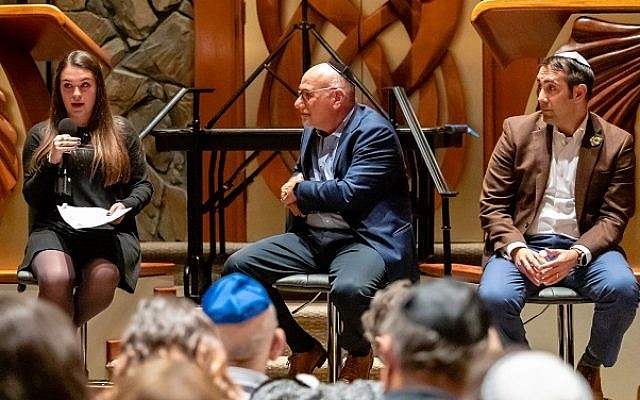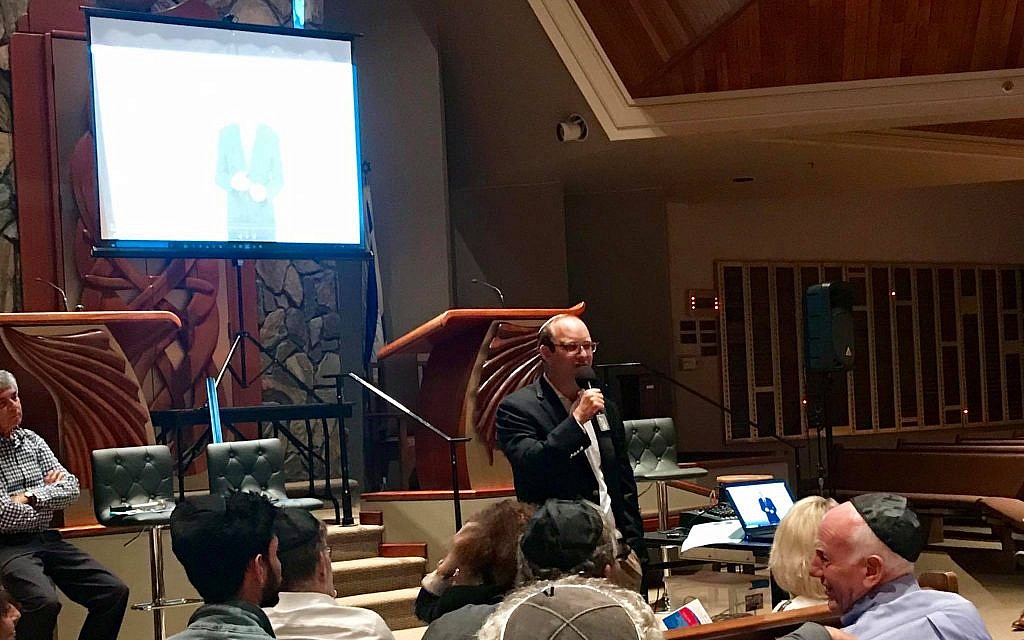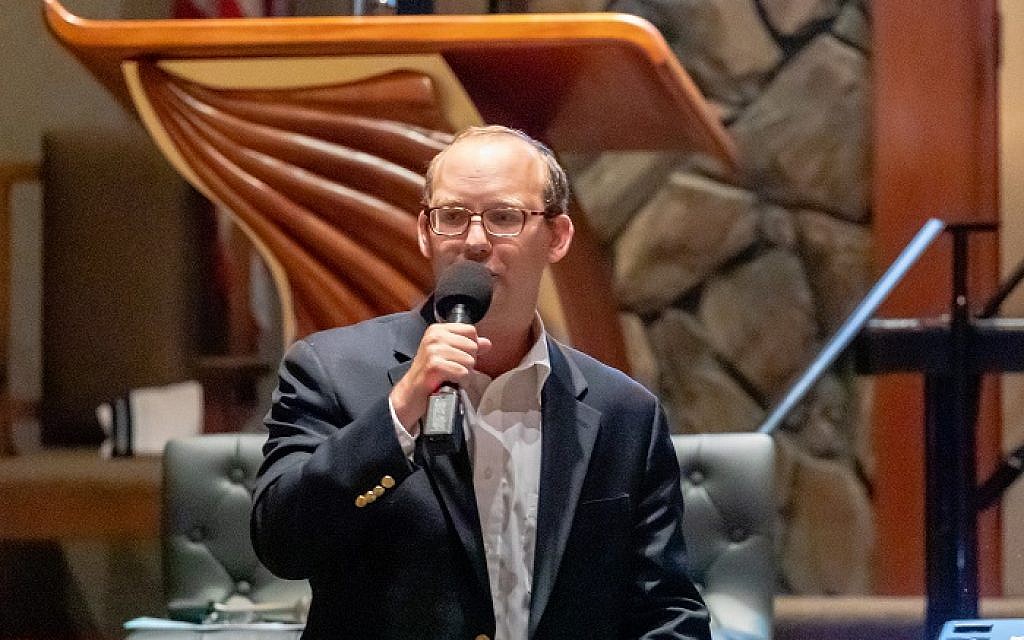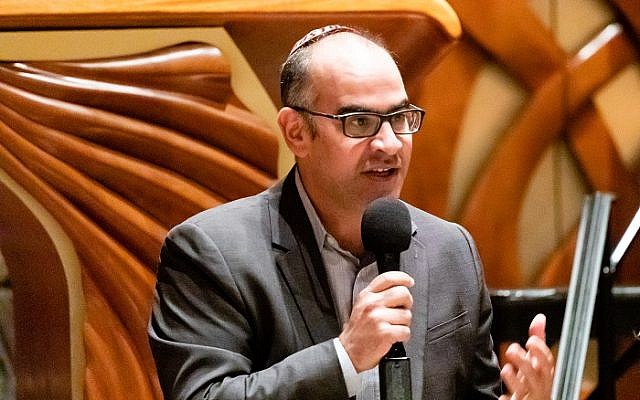Keys to Countering BDS
110 people who gathered at Congregation Etz Chaim to learn about the Atlanta Jewish community’s BDS response.

If PepsiCo’s $3.2 billion purchase of Israel-based SodaStream this summer is any indication, the agenda of the Boycott Divestment and Sanctions movement is fizzling. The movement forced the company that makes at-home soda-making machines to shut its West Bank facility, which ironically hurt Palestinians, who lost their jobs too. But SodaStream came back stronger to attract the attention of the world’s no. 2 soda maker.
Instead of fear and intimidation, the 110 people who gathered at Congregation Etz Chaim Oct. 23 to learn about the Atlanta Jewish community’s BDS response were implored to focus on investment, education and engagement.
 The evening started with a video narrated by Danny Ayalon, founder of The Truth about Israel, former deputy foreign minister of Israel and former Ambassador of Israel to the U.S. The video discussed the BDS movement and its hateful campus agenda that incites violence against Jewish college students and Israel. Although the movement claims to promote freedom, justice, equality and the creation of a Palestinian state, its real ideology is to eliminate the Jewish state, Ayalon said.
The evening started with a video narrated by Danny Ayalon, founder of The Truth about Israel, former deputy foreign minister of Israel and former Ambassador of Israel to the U.S. The video discussed the BDS movement and its hateful campus agenda that incites violence against Jewish college students and Israel. Although the movement claims to promote freedom, justice, equality and the creation of a Palestinian state, its real ideology is to eliminate the Jewish state, Ayalon said.
The BDS movement was started by the Arab League in 1947, around the time Israel was created, according to Harry Stern, a moderator and program co-chair of the Etz Chaim panel discussion.
Ali Medof, another moderator and program co-chair, cited a Pew Research Center study showing that 27 percent of millennials sided with Palestinians. It was 9 percent about 10 years earlier.

On the front lines countering BDS college protests is Becca Nadolne, a University of Georgia campus advocate for the American Israel Public Affairs Committee. She said it’s believed that about 80 percent of the students on campus have no idea about Israel, 10 percent are active in Israel advocacy and 10 percent support Palestine.
In addition to AIPAC, there are other Zionist organizations on campus, including Dawgs for Israel. She has served on its board for the past year. “We show the good parts of Israel, … something good to think about.”
The pro-Israel groups at UGA counter the anti-Zionist rhetoric of the Students for Justice in Palestine on campus. “We invite them to our meetings, but they never want to stay for the event.” Still, the pro-Israel groups have to hire security to escort the pro-Palestinians out when they inevitably voice their anti-Israel sentiments, Nadolne said.
The BDS movement seems to have a PR issue, said Dov Wilker, regional director of the American Jewish Committee Atlanta. “No state in the U.S. supports BDS,” he said. “It has not had an impact financially.”

Rich Walter, vice president of curriculum and outreach for the Center for Israel Education, said his organization tries to focus on “context and content” instead of giving “props” to the BDS movement. With more than half the states in the country having anti-BDS legislation, and less than 10 percent of universities having BDS resolutions, Walter doesn’t believe the movement is effective. “We over focus on BDS. Their impact is negligible.”
For that reason, teens and parents should do more than just live in fear. Education is key, he said. “There are a number of ways to engage in Israel on campus.” He encouraged students to go on Birthright Israel trips, study about Israel, learn Hebrew and invest in the Jewish state. “Instead of defending Israel, we should teach about Israel, embrace Israel, excite about Israel, … the importance of Israel self-determination. We should be teaching Israel, not preaching Israel.”
Georgia companies can also find ways to support and conduct business with their counterparts in Israel, said Mark Spiegel, representing Conexx, the America Israel Business Connector. He cited Israeli companies in the U.S. and Georgia, including some in the Fortune 500, that have established relationships with Israeli businesses, saying, “A lot of big companies are collaborating with Israel.”
After the panel discussion, 18-year-old Shaked Amir – in Atlanta on a gap year from Israel – told the AJT he sees hundreds of thousands of pages of how Israel is illegitimate on Instagram. So, learning about BDS is “extremely important.”
Hearing that Jews are hated is nothing new for Melody Euchman. “It’s the story I’ve heard all my life: Jews are not a much-loved people and we stand up and fight.”
Paul and Cheryl Simonoff have two daughters in college who are interested in Israel advocacy. “I think BDS is a huge problem,” Cheryl Simonoff said. She believed messages like they heard at the BDS forum can inspire college students “to take stands against the challenges of the Jewish people. It’s very disturbing what’s going on.”
- Paul and Cheryl Simonoff
- Dov Wilker
- AIPAC
- UGA
- American Jewish Committee
- Cheryl Simonoff
- Mark Spiegel
- conexx
- Shaked Amir
- Melody Euchman
- Rich walter
- Center for Israel education
- Ali Medof
- American Israel Public Affairs Committee
- Harry Stern
- congregation etz chaim
- The Truth about Israel
- Community
- Local
- Israel
- Roni Robbins
- News



comments